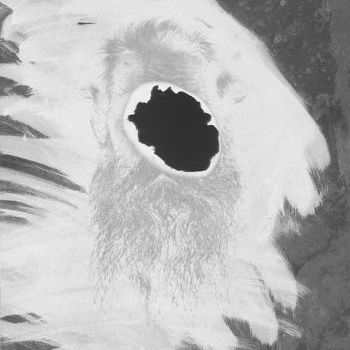A couple of years ago, a letter that revered free jazz saxophonist Mats Gustafsson received from legendary underground cartoonist/moldy fig Robert Crumb made the usual internet rounds. In this quintessentially Crumb correspondence, the King of Crosshatch tells Gustafsson that he can’t fathom "what in God’s name is going on in your head that you would want to make such noises on a musical instrument", and that he had labeled the CD Gustafsson had sent him as ‘Torturing The Saxophone’ (a title which Gustafsson giddily lifted later, for a compilation of out-of-print LPs of his work). Though these opinions come as no surprise to anyone aware of Crumb’s usual musical proclivities (pre-war jazz and blues, immigrant folk musics, etc.), not to mention his overall crotchetiness, it was certainly a treat to see him put so fine a point on it in otherwise-friendly correspondence.
If Crumb can’t abide Gustafsson’s recorded work in general, he would despise Piano Mating in particular. In a rare move, Gustafsson jettisons reeds entirely for this album in favor of the Dubreq Pianomate. This bizarre machine, of 1970s vintage (of course), is designed to attach to a piano keyboard; a series of plungers then interacts with the individual keys, sending the corresponding signal through a rudimentary synthesizer. It is an instrument with which Gustafsson has little familiarity, and which has far less tonal range than a saxophone.
Tossing out the instruction manual for the instrument, as well as the usual guideposts for his own musical approach, Gustafsson plays the Pianomate by itself here, coaxing a microtonal drone lament from this whimsical and archaic technology. Though simple in concept and palette, the results are startlingly varied in both sound and evocation, offering myriad treats and sensations for anyone with the patience to listen.
The first piece on Piano Mating is the friendlier of the two tracks, mellower in its tonal pairings and chosen output filters (the Pianomate comes with its own custom amp and three different "instrument" settings). Though it’s still basically a series of drone clusters, with no small amount of dissonance, it’s reasonably easy on both ears and heart: you could play it in the background of an art gallery with bristling from only the squarest turtleneck-wearers (and R. Crumb).
The flip brings the Pianomate’s more grating and oppressive qualities to the fore, recalling the tectonic drone of vintage Kevin Drumm and the crueler side of Lawrence English, albeit with less low-end rattling than either. I still find it pleasant myself, but I also think Wolf Eyes was better before they started trying to learn music theory. Tread carefully, I guess?
It would be easy for Gustafsson to rest on his already-broad bag of tricks at this stage in his development: after all, it takes a special panache to parlay a career in outer-limits improvisation into work with both Sonic Youth and Neneh Cherry, while still stopping in between to play with a huge grip of important players in his more immediate sphere, so he must be consistently doing something right already. Piano Mating may be a short diversion from this business is usual, but it’s also a reminder that with Gustafsson, business is never quite usual.
<div class="fb-comments" data-href="http://thequietus.com/articles/19413-mats-gustafsson-s-piano-mating-review” data-width="550">


